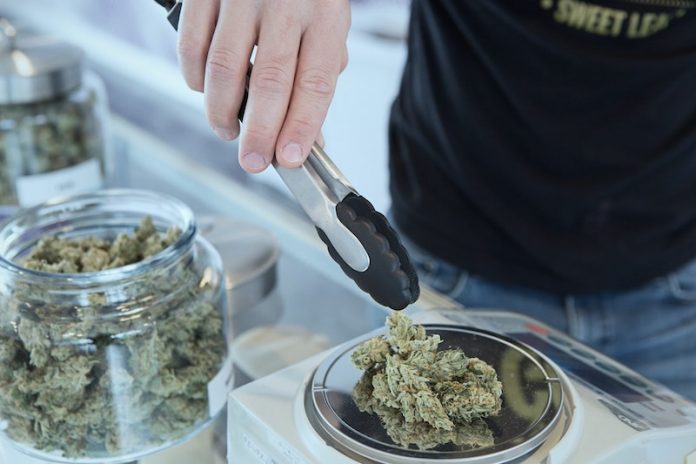
In a new study from Washington State University, researchers used the video conferencing app Zoom to research a type of cannabis that is understudied: the kind people actually use.
They observed cannabis users over Zoom as they smoked high-potency cannabis flower or vaped concentrates they purchased themselves from cannabis dispensaries in Washington state, where recreational cannabis use is legal.
They then gave the participants a series of cognitive tests.
The researchers found no impact on the users’ performance on decision-making tests in comparison to a sober control group but did find some memory impairments related to free recall, source memory and false memories.
While the findings are in line with previous research on low-potency cannabis, this study is one of the few to examine cannabis that contains much more than 10% tetrahydrocannabinol (THC), the plant’s main psychoactive ingredient.
The general population in states where cannabis is legal has very easy access to a wide array of high-potency cannabis products, including extremely high-potency cannabis concentrates which can exceed 90% THC.
Until recently, researchers interested in studying cannabis were limited to using low-potency plants of around 6% THC supplied by the National Institute of Drug Abuse.
In the study, the team found a way to study the effects of high-potency cannabis while still complying with federal guidelines.
The study participants bought their own products and used them in their own homes. They were never in a laboratory on federal property, and the researchers never handled the cannabis themselves.
Participants were not reimbursed for their purchases. Instead, they were compensated for their time with Amazon gift cards.
All participants were over 21 and experienced cannabis users who reported no past negative reactions to cannabis like panic attacks.
The 80 participants were divided into four groups: two groups used cannabis flower with more than 20% THC but one containing cannabidiol (CBD), a non-psychoactive component of cannabis, and the other without CBD.
Another group vaped cannabis concentrates with more than 60% THC that included CBD. A fourth group remained sober.
For all cannabis using groups, the researchers found no effect on a range of decision-making tests including risk perception and confidence in knowledge.
However, the groups that smoked cannabis flower with CBD did worse on verbal free recall trials- they were unable to recall as many words or pictures that were shown to them compared to the sober group.
The groups that used cannabis without CBD and the group that used concentrates, performed worse on a measure of source memory which means being able to distinguish the way previously learned information was presented.
Finally, all three cannabis-using groups did poorly on a false memory test—when given a new word and asked if it had been presented before, they were more likely to say it had when it had not.
The team says there’s been a lot of speculation that these really high-potency cannabis concentrates might magnify detrimental consequences, but there’s been almost zero research on cannabis concentrates which are freely available for people to use.
It is important to see more research before scientists come to any general conclusion.
If you care about cannabis and your health, please read studies about using cannabis too much may lead to false memories and findings of cannabis could help fight resistant bacteria.
For more information about cannabis and wellness, please see recent studies about single dose of cannabis THC may cause psychotic, depressive, and anxiety symptoms and results showing that heavy cannabis use could affect your DNA, harm brain and heart functions.
The study is published in Scientific Reports. One author of the study is Carrie Cuttler.
Copyright © 2021 Knowridge Science Report. All rights reserved.



